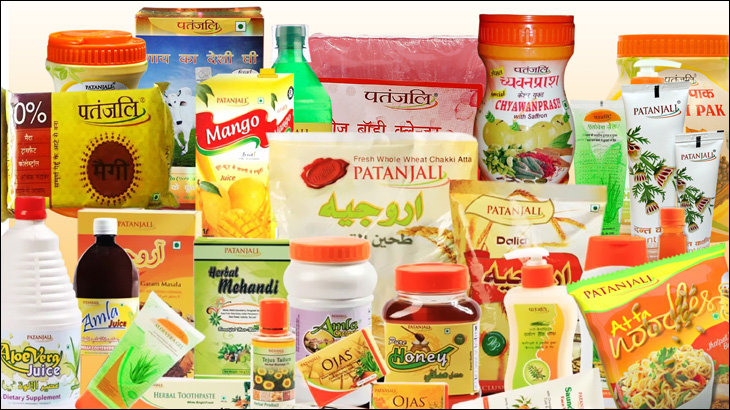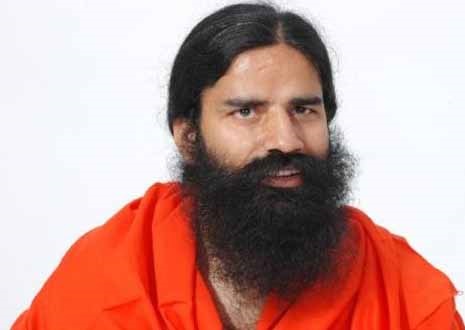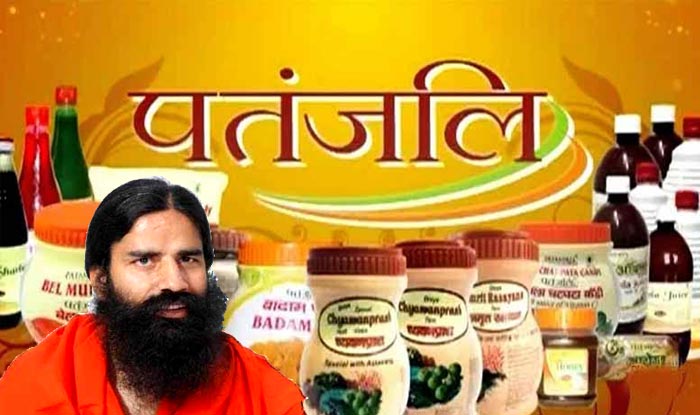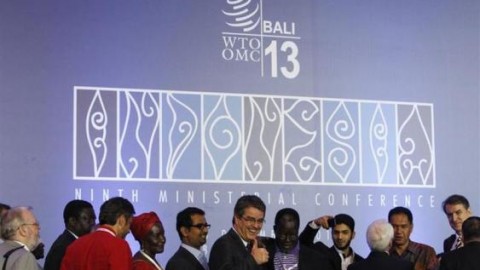Today patanjali products are everywhere; from local stores to amazon. The product quality is one of the best in the market, the prices are competitive and the distribution being is one of its kind yet, and competing with the reach of Cola in almost every village of India today.
It may not be foreign to anyone in India but Baba Ramdev has indeed created an empire so colossal that it is difficult to be ignored. The wide range of Patanjali Ayurvedic products has created a business worth rupees 5000 crore.
He is an unlikely entrepreneur who works under his cover of the yogic expertise and yet doesn’t fail to impress with the numbers and the statistics.
A New York Times article has called him, “An Indian who built the Yoga Empire, a product and symbol of the New India, A yogic fusion of Richard Simmons, Dr. OZ and Oprah Winfrey, irrepressible and bursting with Vedic wisdom.”
 Behind this, lay the efforts of maverick, a yogi meticulously and silently creating his own brand while the world was mocking him for who he was, what he wore, and definitely his ideologies.
Behind this, lay the efforts of maverick, a yogi meticulously and silently creating his own brand while the world was mocking him for who he was, what he wore, and definitely his ideologies.
In just a couple of years, it rose to the topic of a censorious discussion on how, Baba Ramdev could capture the world beneath his feat, what companies like Emami and other well-established brands FMCG Brands couldn’t do in decades.
What is even more riveting, is how Patanjali rose to the heights of success without any formal, marketing activities or advertisement gimmicks which other companies, usually invest in; spending huge amounts on media.
INNOVATION
Patanjali tapped into a market, where, there existed both old and traditional brands in terms of their product and marketing strategy.
However, here, the innovation can be considered to be in a hidden state of tradition; they emphasised the usage of the Ayurvedic herbs and provided the effortless way in a licitly new form.
One important strategy to be pondered here, is how Baba Ramdev rarely “advertised” his products or dispelled the buyers’ doubts about the goodwill of his products.
Instead, he decided to focus on the fouls and inutility of his contenders; he absorbed on the virtues of the brand – “made in India”, the graveness of providing farmers employments, the cancerous effects of the fertilisers and decided to leave it to the consumers to buy his product or not.
Here, it also shows his tendency of goodwill for the people of India, where in he does not want to sell his product, but wants people to make the most of his products, without him forcing them to buy them .
A particular domain was created which compelled the consumers to secure the product, especially when no one forced them to buy them directly. This gave rise to a new breed of loyal customers, who were willing to spend the price; probably as much as they would spend on a Colagate toothpaste, yet who choose to spend on a Dantkanti toothpaste.

WHY PATANJALI?
When asked this question to these ‘loyal’ set of customers, often they may be seen to be swayed away by the angst of diseases, that might be contacted by the other products, or another very small percentage who wanted to be patriotic to deliberately shun the american roots of these economical anacondas; who metaphorically swallow the rupees out of the Indian pockets. Whatever was the reason, Patanjali had now started germinating in the roots of the indian minds.
STRIKE WHEN THE IRON IS HOT:
After the great decline of Maggi noodles, and the ‘leaded’ the FSSAI, Patanjali was erudite enough to launch his noodles just in time, thus trapping a big share of the noodles industry.A bubble which Nestle was staying in, suddenly got busted.
WHAT LOOKS GOOD, GETS SOLD:
Even though, Patanjali holds a reputation of being an acutely Indian company with its roots strongly entrenched in the ‘Made in Bharat’ formula, it was generalised on to the Indianised products like Vicco and Dabur. But, Patanjali is seen to have some precise packing, which increases its ideals of being bought, especially by the Indian audience.
THE STAFF
Patanjali is not seen hiring world-class MBAs or Digital Ninjas as they are called, rather, experts in the field of Science, Biology, Pharmacy, Botany are hired. Preference is given to PhD holders.
UNDERSTANDINGS OF THE MARKET
While startups in India are only seen focusing on the much active majority of the population who are also exposed to a certain level of the education, purchasing power and media, Patanjali was seen focusing on the much common, homogenous, set of individuals in the country, the hindi speaking crowd, whose reach is in turn expected to about 12 million.
BEING SWADESHI
A country which caters to most of the rural population, it is important to understand the affordability of the price points.
A product, completely made and manufactured in India is the need of the hour. According to a study, “The national and multinational fast moving consumer goods (FMCG) brand playing in the fast growing $1 trillion Indian market, (2012) have started facing intimidation from home grown, and an absolutely, ‘Swadeshi’ competitor.”
GOING GLOBAL
Patanjali was keen to expand internationally as far his products were concerned. Just Baba Ramdev’s yoga, products were warmly welcomed abroad.
Therefore, he has acquired an Ayurvedic company in USA called Herbo Ved, for an undisclosed sum to sell his new products.
REDUCED THE UBIQUITOUS COSTS
Generally, all the other FMCGs work up to the reputation of spending 10-16 per cent on marketing. Patanjali has been spending lesser than 8 percent.
FMCG companies employ 6 percent to 7 percent of labour, the latter, around 3 per cent.
This company is well-built to compete with giants like Emami Ltd, Marico Industries Ltd., or even Pepsi Co. or others which stand up to the reputation of FMCG tycoons.
Although, Baba Ramdev has been making names through his work in the Yogic sector he has been, without a doubt a successful marketeer; not only in the terms of the real supporters count, but virtually as well.
His work in the “Bharat Swabhiman Andolan’ where in the boycott of foreign goods and the promotion indigenous products was a talk of the town .
Needless to say, many of his controversies have also made in one in the news almost every day or the other, yet, people seem to be crowding the Patanjali shops more and more, day by day.
Tags: Baba Ramdev Patanjali Patanjali products rise of Patanjali








